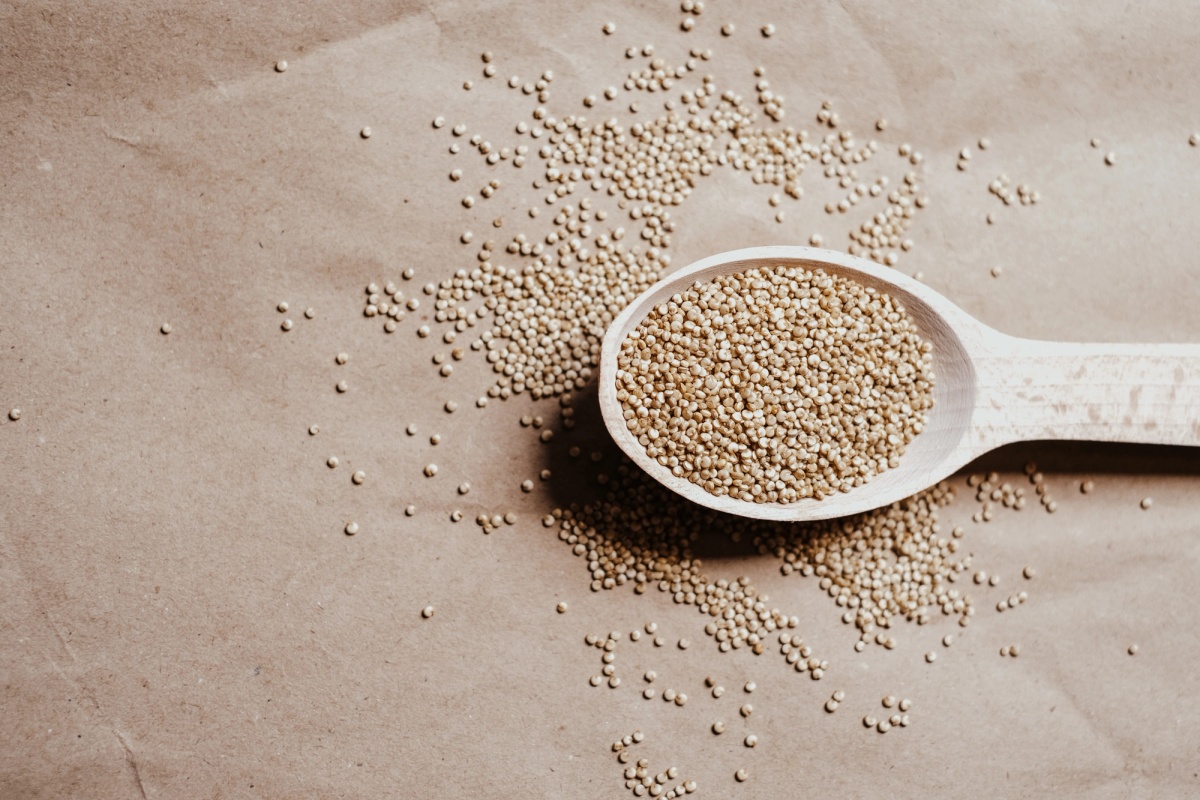Quinoa
- Seeds & Lentils
Quinoa, Chenopodium quinoa, is an ancient superfood that has been cultivated for over 5,000 years. Though often called a grain, quinoa is a seed and classified as a pseudo-cereal. This sets it apart from traditional grains. Notably, quinoa has been recognized by NASA as a suitable crop for long-duration space missions due to its adaptability and nutrient density. These factors contribute to its remarkable history, unique classification, and suitability for sustaining astronauts in space.
Quinoa is a highly nutritious grain-like seed, rich in protein, fiber, vitamins, and minerals. It offers numerous health benefits, such as being a complete protein source, gluten-free, and rich in antioxidants. Quinoa helps regulate blood sugar levels, supports heart health, aids digestion, and promotes weight management. Its consumption is beneficial for vegetarians, vegans, and individuals with gluten intolerance. With its high nutrient content and various health-promoting properties, quinoa is a valuable addition to a balanced diet.
References:
Khairuddin, Muhammad Arif Najmi, and Ola Lasekan. "Gluten-Free Cereal Products and Beverages: A Review of Their Health Benefits in the Last Five Years." Foods, vol. 10, no. 11, 2021, article 2523. doi:10.3390/foods10112523.
Gabrial, Shreef G. N., et al. "Effect of Pseudocereal-Based Breakfast Meals on the First and Second Meal Glucose Tolerance in Healthy and Diabetic Subjects." Open Access Macedonian Journal of Medical Sciences, vol. 4, no. 4, 2016, pp. 565-573. doi:10.3889/oamjms.2016.115. Epub 2016 Oct 5.
